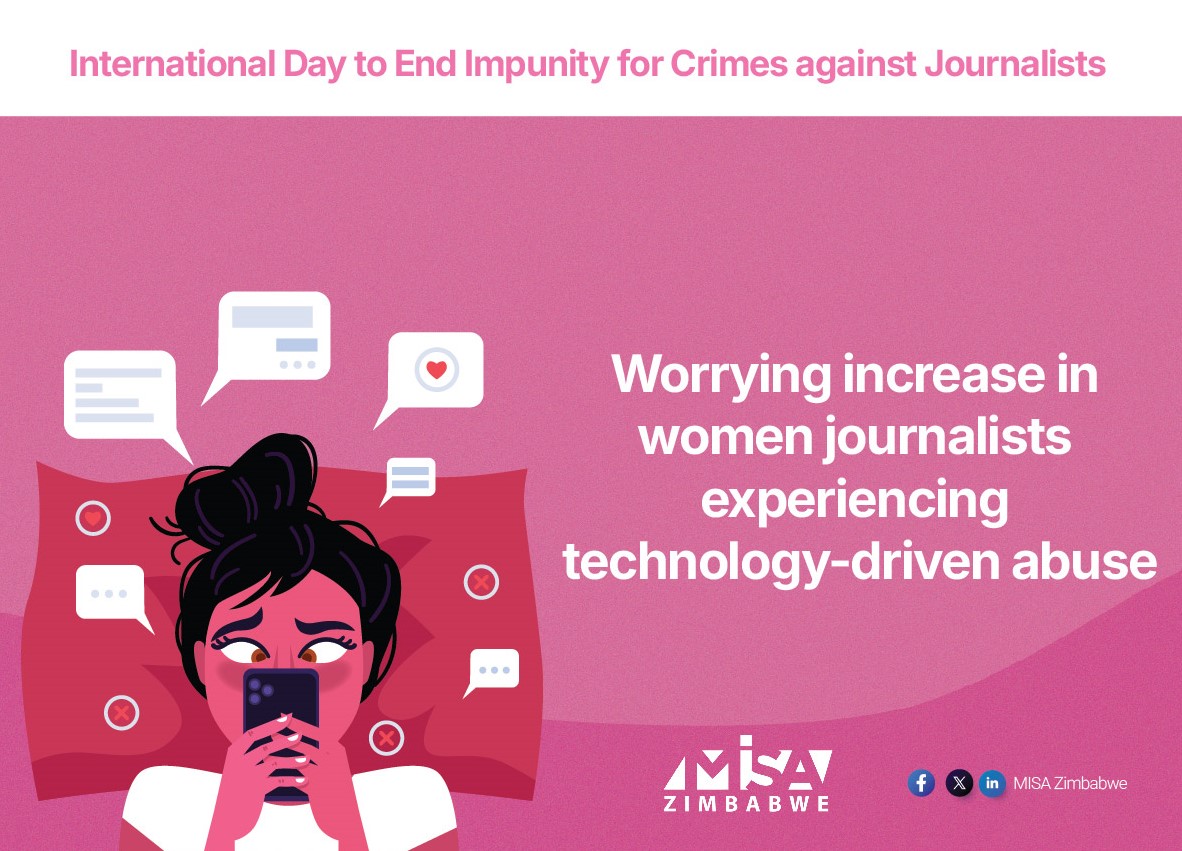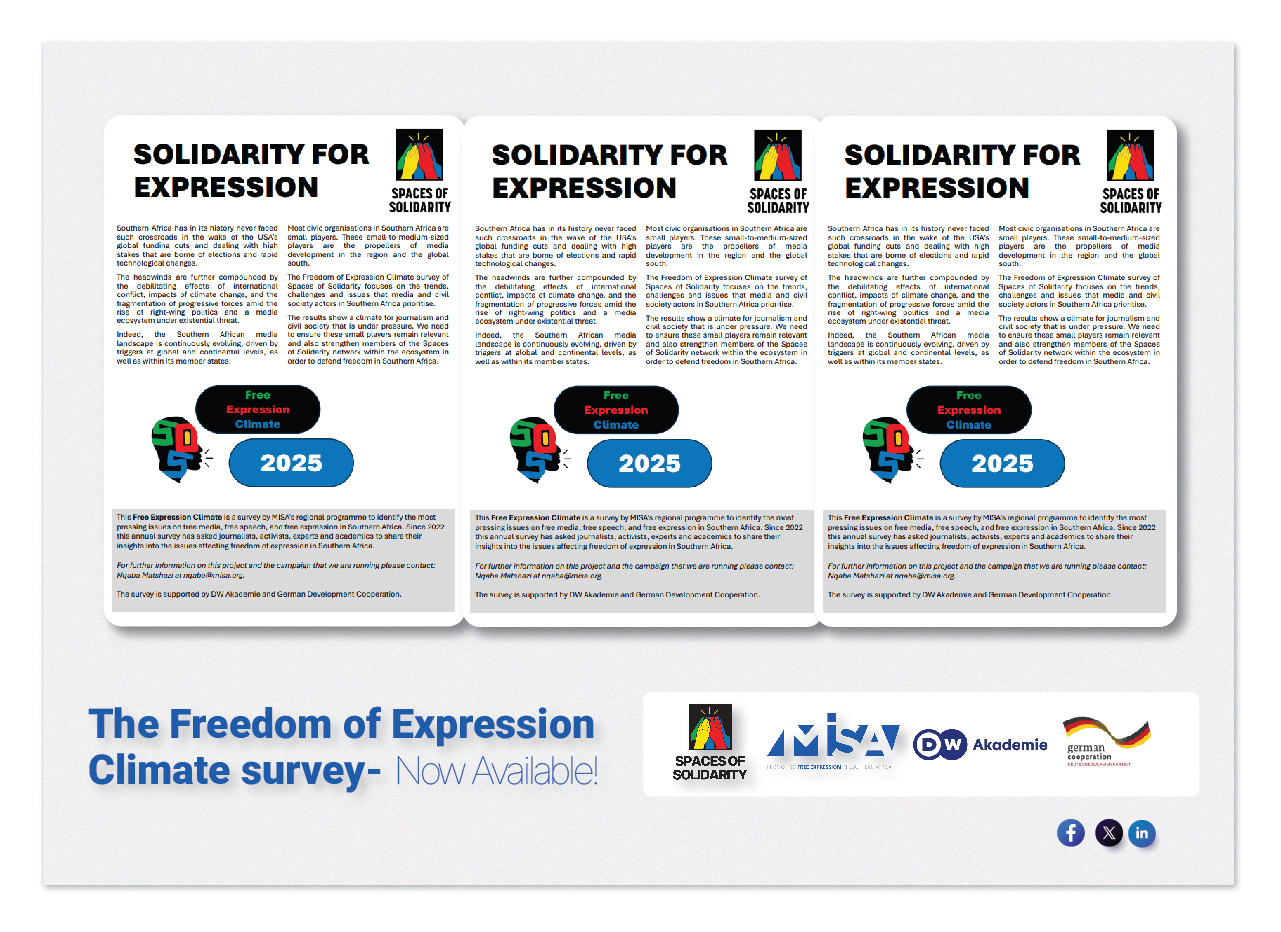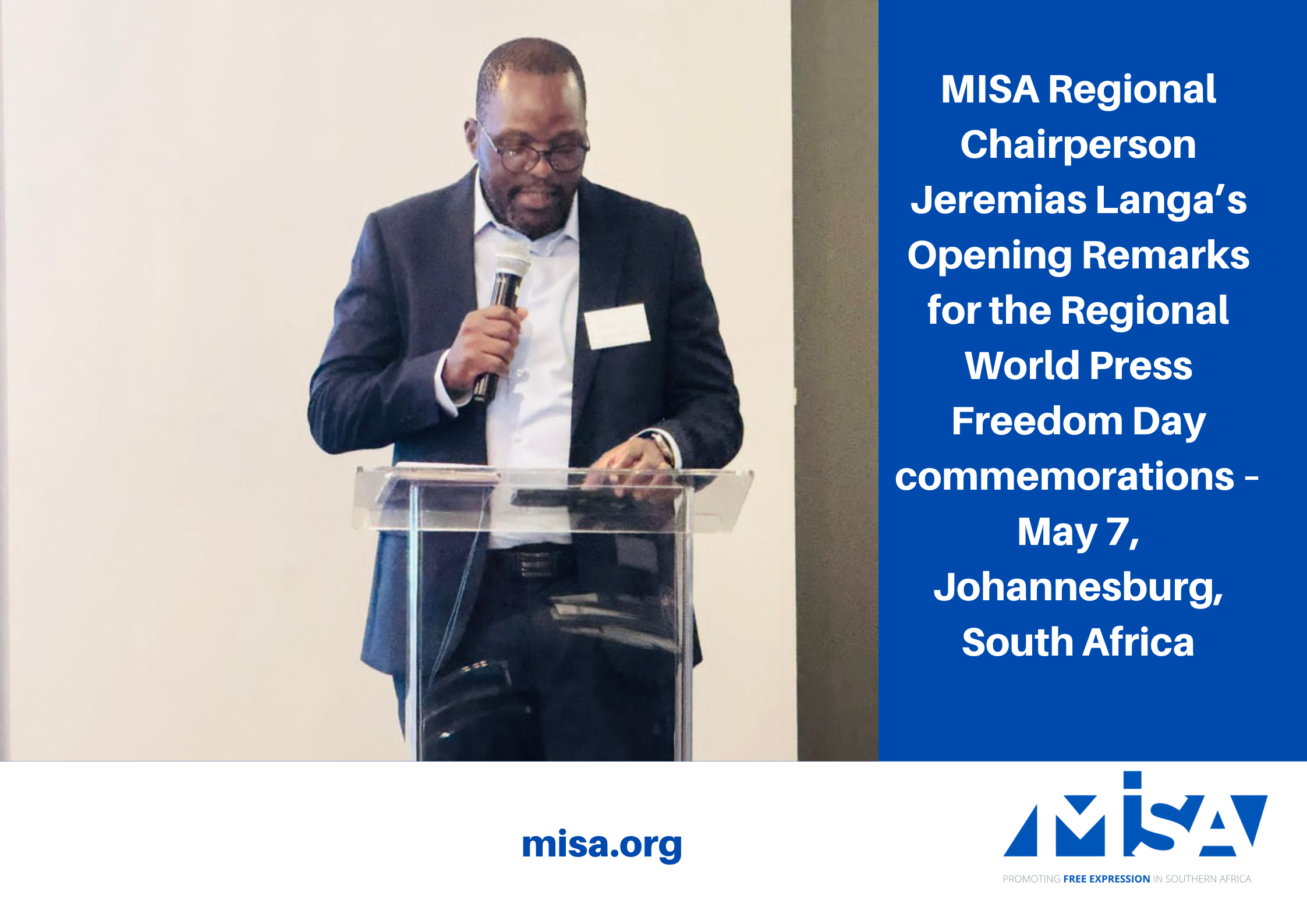Access to information
The right to seek, access and receive information is guaranteed by Article 19 of the Universal Declaration of Human Rights, Article 9 of the African Charter on Human and Peoples’ Rights, and Article 4 of the Declaration of Principles on Freedom of Expression in Africa. It is also recognised in many of the constitutions of southern African countries.
MISA Zambia, through its Freedom of Expression and Access to Information Programme, aims to address the challenges affecting media freedom and freedom of expression. The programme promotes research and advocacy on media freedom, freedom of expression and Access to Information (ATI). We employ different strategies including public education on the importance of ATI legislation.
Further, MISA Zambia seeks to actively engage key stakeholders and decision makers, who may have influence in getting the Access to Information Bill, enacted.
MISA Zambia advocates for legislative changes to media laws and particularly the repeal of laws that criminalise the work of the media. The organisation has adopted new innovative and effective advocacy strategies and developed clear advocacy messages. As part of its advocacy efforts, MISA Zambia has also increased its contacts and engagement with the National Assembly, the Executive and civil society organisations while also supporting grassroots organisations in their push for information access.
Universal Access to Information Day (Right to Know Day)
MISA Zambia celebrates Universal Access to Information Day every year on 28th September. The day is used to raise awareness about the importance of the right of access to information in Zambia.
Access to information news from our chapters
Apply Now: AI Journalism Innovation Fellowship for Southern Africa – Innovation and Integrity
DW Akademie's Dialogue Fund is inviting journalists and newsrooms from Southern Africa to apply for an innovative fellowship programme focused on developing AI solutions for public service journalism that combine innovation and integrity. What is the fellowship...
Ensuring safety for women journalists in the Digital Age
The past few years have seen a significant rise in the use and adoption of artificial intelligence (AI). For journalists, generative AI is a double-edged sword, as it is both an efficient enhancement technology and accentuates online abuse and technology-facilitated...
MISA launches the FOX Report for January-June 2025
MISA Zambia has launched the Freedom of Expression (FOX) Report for January-June 2025. The FOX Report is an initiative of MISA Zambia that has been produced annually since 2022. Speaking at the launch event, Ministry of Information and Media Permanent Secretary, Thabo...
The Freedom of Expression Climate survey 2025- Now Available!
Southern Africa has in its history never faced such crossroads in the wake of the USA’s global funding cuts and dealing with high stakes that are borne of elections and rapid technological changes. The headwinds are further compounded by the debilitating effects of...
MISA Regional Chairperson Jeremias Langa’s Opening Remarks for the Regional World Press Freedom Day commemorations –
MISA Regional Chairperson Jeremias Langa’s Opening Remarks for the Regional World Press Freedom Day commemorations – May 7, Johannesburg, South Africa The Regional Representative of the Regional Office of OHCHR in Southern Africa Ms Abigail Noko Secretary General of...








